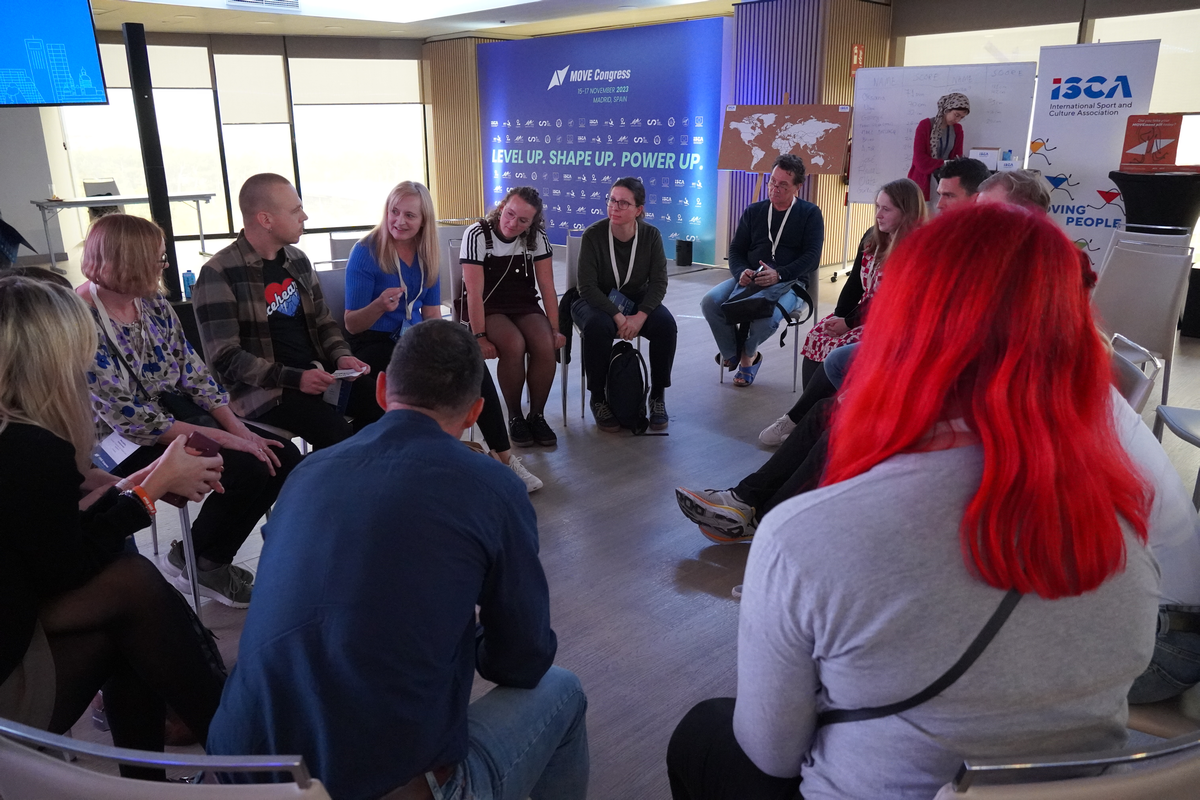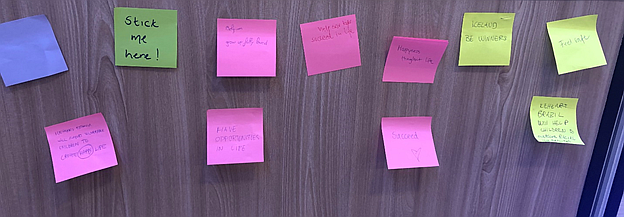
A deep dive into the Icehearts approach to supporting children’s mental and physical wellbeing
In the (post-)COVID era, approximately 20-25% of youth are suffering from mental health problems and, when combined with the persistent trend of insufficient physical activity among 80% of adolescents, this poses a significant threat to the health and well-being of children and youth. But wait, there’s good news – an initiative called Icehearts is leading the way, doing its best to nurture both sides of this wellbeing coin!
At the MOVE Congress on 16 November, experts from Icehearts Finland, Kai Tarvainen and Nelli Niemelä, took the audience on a deep dive into the successful approach to supporting children’s mental and physical wellbeing that is now being piloted in other European countries. Petteri Lahti, Head of the Sport and Youth Department of the city of Pori, and Riikka Heinzmann, a school teacher who specialises in the Icehearts method, both from Finland, joined the two-hour masterclass, which was moderated by Fiona Chambers, who invited the attendees to listen with their hearts, setting the tone for compassionate exploration and participation.





Founded in 1996, Icehearts was established as a response to challenges in child welfare. Through a 12-year journey marked by long-term support, child-orientation and a positive educational approach, Icehearts prevents social exclusion, promotes health, and enhances the psychosocial skills of disadvantaged children and adolescents. Icehearts Finland uses team sports as a tool for engaging children with social work. Each team is led by a mentor who supports the selected children at school, after school and at home for 12 years. Children who require special support and who have been recognised as being at risk of social exclusion early on are selected for a team. They are selected in co-operation with pre-school, school and social service professionals. In 2023 the International Sport and Culture Association (ISCA) and Icehearts joined forces to launch a Europe-wide expansion of this successful initiative.
The question arises: Why do communities need a programme like Icehearts? Because Icehearts is like a friendly guide on a 12-year journey from childhood to adulthood. It helps kids and families by preventing problems and supporting their wellbeing. Icehearts finds adult mentors who stick with the kids throughout their development, creating special bonds that are more personal than what municipalities or regular school teachers can offer. What’s cool is that Icehearts doesn’t just bring quick fixes – it’s like a lasting magic touch that helps both now and in the future. It’s the community’s friend, making sure everyone grows up happy and supported. It’s about creating a better life for every child, young person and their families, which is ultimately something truly valuable for the community.
Yet, the 12-year journey poses challenges for the mentors, especially in terms of how much they can do and what is enough. Still, Icehearts mentor Nelli Niemelä reassures that “Icehearts gives you more than what it takes”.
Petteri Lahti highlighted some key elements that helped Icehearts Finland convince the municipality’s administration to finance the operation and to continue and increase the funding on the local level, highlighting the importance of raising awareness of the concept and showcasing measurable results. Real stories from families demonstrating the positive impact on school success and self-esteem, serve as the best “sales pitch”, he says.
The interactive part of masterclass was a World Café, where the audience had the opportunity to ask the Icehearts mentors, teachers, administrators, and the ‘new adopters’ piloting the Icehearts approach across Europe their questions about the initiative. Afterwards, we approached one of the attendees, Gregor Starc from the University of Ljubljana, who had expressed his amazement about the Icehearts model to ask him why he thought that way, and his answer was: “I have never seen a similar model to Icehearts, what amazes me is the commitment of the mentors to help in integrating the children into society and their relationships with the children. 12 years is a lot.’’
Closing the masterclass, Fiona Chambers invited the attendees to complete the gaps in a statement called ‘commitment’: Icehearts ____ will support vulnerable children to _____.
A Belgian organisation promised to support vulnerable children to grow up fully loved. So what about your organisation? How can you be involved in supporting children’s mental wellbeing?

Visit the Icehearts website
By Manal Najah, ISCA


